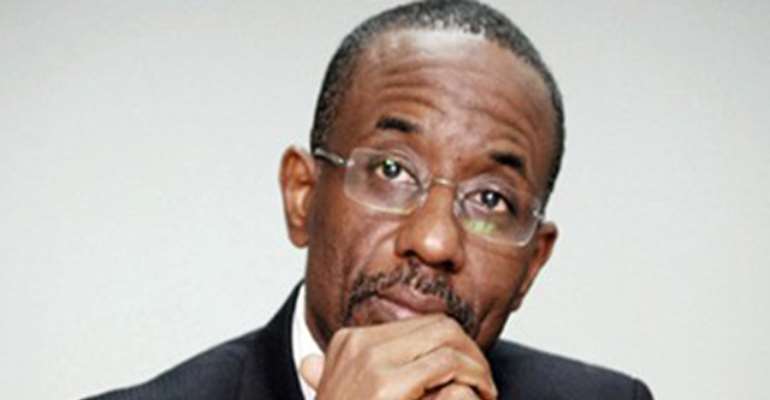CBN worried by N700b rise in govt borrowing in four months

The Governor, Central Bank of Nigeria, Mr. Lamido Sanusi, has again noted with concern the increased borrowing activities of the Federal Government.
Governor of the bank, Mallam Sanusi Lamido Sanusi, said the government increased its borrowing in securities by N700bn in four months.
The governor, in Lagos on Thursday, said the government also reduced its savings to commercial banks and with the CBN by about N1.4tn during the same period.
He said, 'Between December 31, 2012 to April 30, 2013, government increased its borrowing in securities by N700bn. It reduced its savings to commercial banks and the CBN by about N1.4tn. Technically; the government has spent more than N2tn in four months, which is a lot of money.'
CBN's's monetary policy committee recentlywarned that military operations against Islamic insurgents in the North could pose liquidity risks for the economy.
Sanusi Lamido Sanusi, governor of the CBN and chairman of the Committee, who said this at the end of the committee's two-day meeting, projected that the emergency rule declared in the three North Eastern states might spur increased spending by government.
This, they believe, will result in liquidity risks in the economy.
'The recent military action in the North-East will result in additional spending,' Sanusi said.
Despite that Nigeria's Debt to Gross Domestic Product (GDP) threshold has been increased from 40 per cent to 56 per cent, the Debt Management Office (DMO) recently cautioned the federal government not to abandon the current conservative position on borrowing.
DMO Director -General, Dr Abraham Nwankwo gave the caution while flagging off the 2013 National Debt Sustainability Analysis Workshop, in Abuja .
He emphasised the need for the country to maintain the 40 per cent threshold despite the increase in the country's capacity to borrow.
Nwankwo said that Nigeria has been reclassified in terms of where it belonged in the low income countries and the implications were that the Net Present Value to GDP ratio which used to be 40 per cent for countries in the country's peer group has been reviewed upward to 56 per cent.
'However, I will wish to advise that the country remain conservative and not take any risk that would take us too close to the threshold. Even when the NPV to GDP ratio was 40 per cent, we committed ourself to a 25 per cent ratio up to 2015. I will advise that even now that the threshold for countries in our peer group have been reviewed upward to 56 per cent, Nigeria should continue to work with 40 per cent for taking decisions or making recommendations.'
